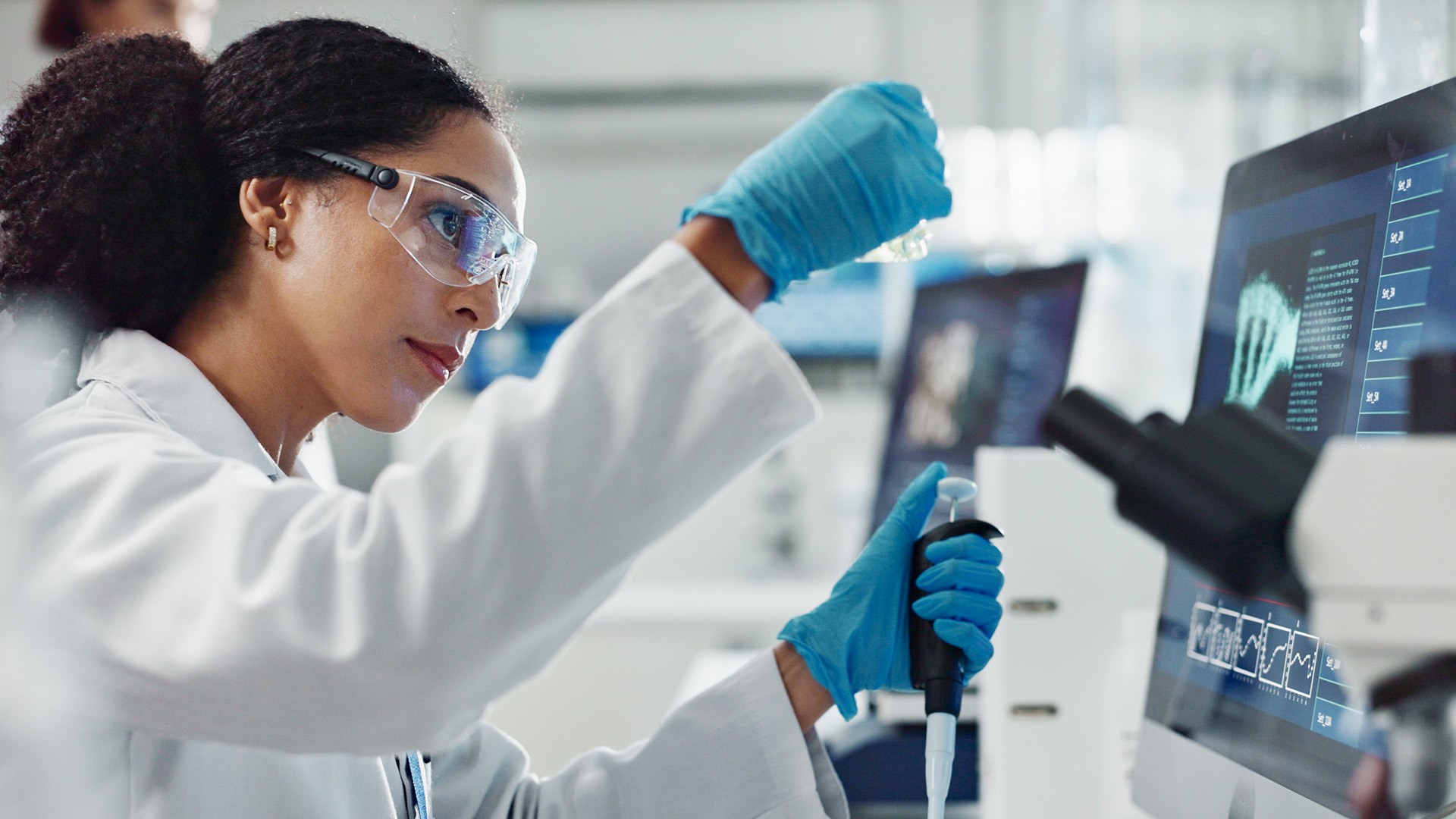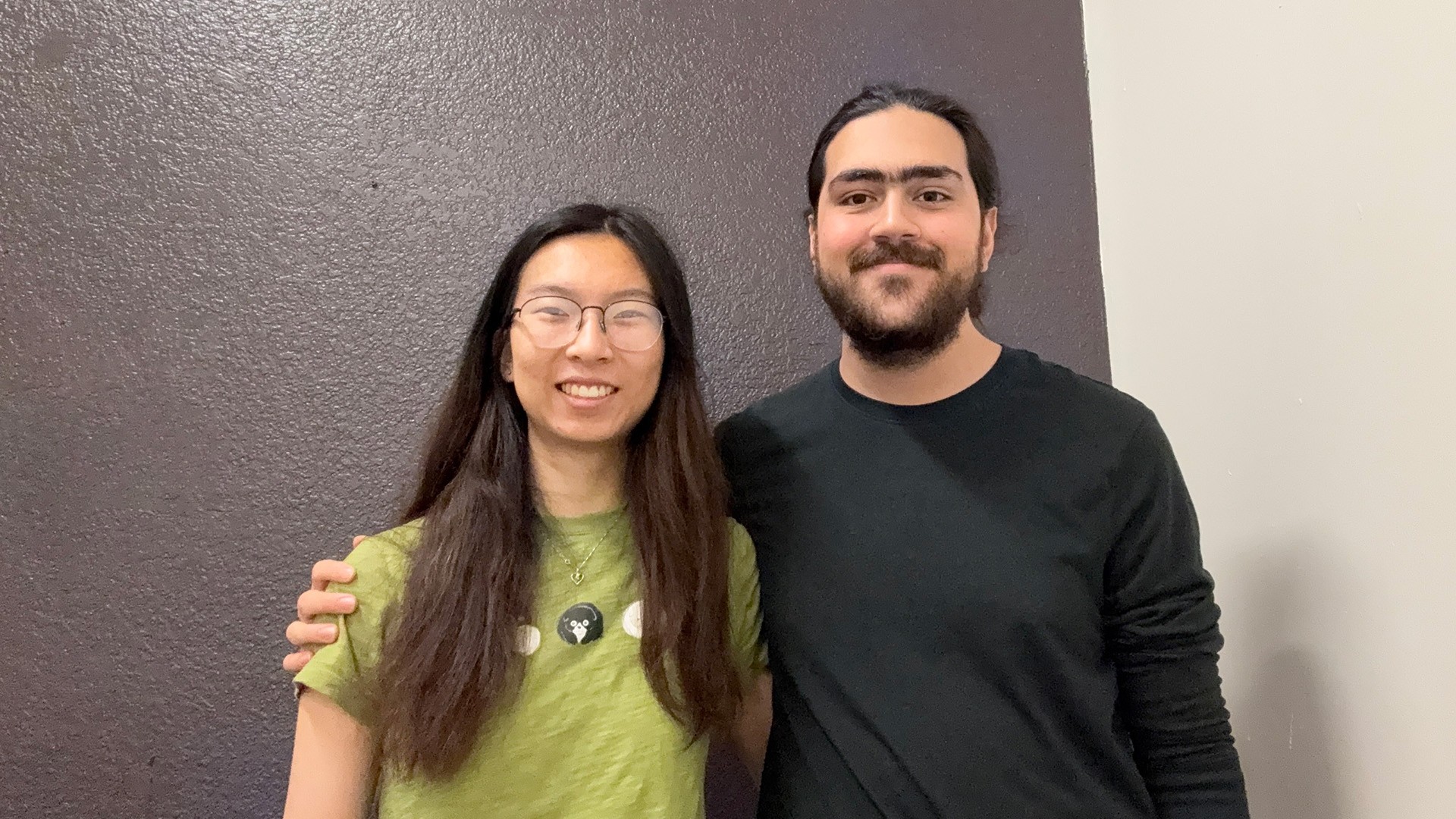Comment a été ce contenu ?
- Apprendre
- Tamarind Bio stimule la découverte de médicaments assistée par l’IA avec AWS
Tamarind Bio stimule la découverte de médicaments assistée par l’IA avec AWS

Les équipes de recherche et développement (R&D) et les chercheurs en sciences de la vie consacrent leur carrière à la découverte de traitements pour certaines des maladies les plus complexes auxquelles l’humanité est confrontée. Compte tenu de la complexité de la biologie humaine, la mise au point de ces médicaments révolutionnaires est une entreprise coûteuse qui s’étale sur plusieurs années. L’IA détient désormais les clés pour accélérer la recherche médicale vitale à grande échelle, mais uniquement si elle est accessible aux experts qui font avancer ces projets.
Dans bien des cas, les spécialistes des sciences de la vie ne sont toujours pas en mesure de tirer parti des modèles d’IA pour mener des recherches de pointe à un rythme plus élevé. S’ils y parviennent, ils doivent s’appuyer sur des collègues dotés d’une expertise technique pour déployer et exécuter de grands modèles de langage (LLM) pour eux. Non seulement cela ralentit la dynamique, mais ils ont aussi souvent du mal à garder le rythme des publications de nouveaux modèles. Le PDG et cofondateur de Tamarind Bio, Deniz Kavi, explique les problèmes dont il a été témoin de première main en tant que scientifique des données : « Dans mon laboratoire de premier cycle à Stanford, j’ai littéralement été embauché pour être le responsable humain chargé d’exécuter ces modèles. Nous avons eu tellement de demandes de publications et de collaborateurs qu’il est devenu impossible de les exécuter manuellement. »
Réalisant que les entreprises biotechnologiques et pharmaceutiques sont confrontées aux mêmes obstacles, Deniz Kavi et Sherry Liu ont cofondé Tamarind Bio en 2023. Dans le but de mettre la puissance de l’IA entre les mains de tous les scientifiques, ils ont développé une plateforme sur AWS pour les aider à transformer les idées en médicaments concrets le plus rapidement possible. La start-up est désormais au service de sociétés pharmaceutiques de premier plan au quotidien et a aidé des milliers de scientifiques à découvrir de nouvelles molécules. Comme l’explique Sherry Liu, directrice technique et cofondatrice : « Les scientifiques ont économisé des milliers d’heures qu’ils auraient passées à configurer des modèles, exécuter des scripts locaux et gérer des données, grâce à une plateforme fluide regroupant tous les meilleurs outils en un seul endroit. »
Un remède à la biologie informatique complexe
L’interface simple de Tamarind rend l’IA accessible à tous les scientifiques en prenant en charge toutes les exigences d’infrastructure et en les connectant aux derniers modèles à mesure de leur apparition. Les équipes de R&D sont équipées pour résoudre les plus grands défis médicaux de la société grâce à l’utilisation à grande échelle de modèles avancés comme AlphaFold et RFdiffusion. De tels outils permettent aux équipes de mieux comprendre le rôle des protéines et la manière dont elles interagissent avec d’autres molécules dans des délais beaucoup plus courts, un élément notoirement complexe, mais essentiel à la réalisation de découvertes révolutionnaires. Comme l’explique Sherry Liu : « Nous permettons aux scientifiques d’utiliser ces modèles dans les pipelines, qui nécessiteraient autrement une configuration personnalisée pour les configurer et les tenir à jour ». Les scientifiques n’ayant pas à se soucier du code, Tamarind les aide à concentrer leur temps et leurs ressources là où cela compte.
En tant que start-up, Tamarind avait la tâche de gagner la confiance d’entreprises établies avant de pouvoir démontrer son impact réel. En collaborant avec AWS dès le départ pour créer sa plateforme, la start-up a pu lancer sa croissance rapide. Comme le dit Deniz Kavi : « Si nous n’avions pas fait appel au fournisseur de cloud le plus fiable, je ne pense pas qu’il aurait été viable de travailler avec de grandes sociétés pharmaceutiques. »
Ce partenariat a aidé Tamarind à gagner rapidement en crédibilité et à bénéficier de conseils pratiques de mise en œuvre. L’entreprise utilise désormais des dizaines de services AWS pour héberger plusieurs centaines de modèles et rester agile face à l’évolution des exigences, notamment Amazon Bedrock, Amazon EC2, Amazon S3, Amazon DynamoDB et Amazon EKS. « Nous gérons de nombreuses infrastructures et cela se fait de manière très fluide via AWS. Il ne nous serait pas possible de créer cela sur un centre de données ou d’utiliser un autre fournisseur de cloud dans ce contexte », déclare Deniz Kavi.

Accélération des expériences avec l’IA agentique
Dans le cadre de sa mission visant à rendre les outils d’ingénierie des protéines simples et accessibles, Tamarind intègre un assistant d’IA agentique pour « exécuter les tâches et analyser les résultats », explique Sherry Liu. Deniz Kavi ajoute que « les scientifiques ont l’intuition et les idées nécessaires pour résoudre les problèmes, mais ils n’ont souvent pas l’expertise nécessaire pour créer un système permettant de simuler des expériences. Nous pensons que l’IA agentique leur permettra de mieux appréhender les choses dans leur ensemble. »
La start-up simplifie la science informatique en connectant tous ses flux de travail et outils AWS à un LLM sur Amazon Bedrock. Auparavant, les scientifiques devaient écrire du code pour chaque tâche du processus de découverte de médicaments, en ajoutant tout, des ions aux eaux et aux membranes, un par un. Tamarind Copilot, l’outil d’IA agentique de la start-up, se charge de cette préparation approfondie et permet aux utilisateurs de simuler des systèmes moléculaires complexes en langage clair et d’itérer des expériences d’une manière qui n’était pas possible auparavant.
Décrivant le processus de développement de l’outil, Deniz Kavi déclare : « Les employés d’AWS nous ont expliqué comment le mettre en œuvre au mieux et permettre de le mettre à l’échelle. Le processus de mise en œuvre s’est déroulé sans heurts à partir de là. » Depuis son lancement, Tamarind peut continuer à développer son offre d’IA agentique de manière structurée et sécurisée à mesure que la technologie progresse grâce à Amazon Bedrock. « Le fait que les nouveaux modèles soient disponibles dans AWS au fil du temps nous est d’une grande aide. Il s’agit des mêmes schémas standard et des mêmes exigences informatiques fiables », ajoute Deniz Kavi.
Mise à l’échelle des capacités des scientifiques
Compte tenu de la complexité de l’exécution des modèles de test, une quantité importante de calcul est requise pour faire face aux pics de demande. Avec AWS, Tamarind peut tirer parti d’une capacité de mise à l’échelle haute performance sans réaliser d’importants investissements initiaux. « Grâce aux fonctionnalités d’autoscaling d’AWS, nous pouvons passer de zéro à 10 000 GPU en quelques minutes », explique Deniz Kavi. La start-up a pu rapidement prouver la puissance de son produit aux grandes entreprises pharmaceutiques tout en utilisant uniquement les ressources dont elle a besoin, quand elle en a besoin.
Pour passer entre des centaines de modèles à la demande en toute sécurité, Tamarind utilise Amazon EC2 et Amazon EKS. « L’utilisation d’instances Spot nous a permis d’économiser plus de 50 % sur le calcul, tout en maintenant une disponibilité à l’échelle. La gestion de nos charges de travail complexes ne serait pas possible sans AWS », déclare Sherry Liu. L’entreprise utilise également Amazon S3 pour le stockage d’objets à l’échelle et Amazon DynamoDB pour une base de données entièrement gérée offrant des performances élevées à n’importe quelle échelle.
Depuis ses débuts, la start-up bénéficie également du soutien de gestionnaires de compte AWS dédiés, qui ont proposé des conseils continus, des ateliers et des crédits AWS Activate pour explorer différents services. « AWS se soucie vraiment de nos besoins et est en mesure de fournir une assistance technique et des temps de réponse rapides », déclare Sherry Liu. Qu’il s’agisse d’optimiser les coûts ou de collaborer au développement de produits, Deniz Kavi ajoute : « Ce qui est incroyable, c’est que nous pouvons avoir le sentiment qu’AWS est un partenaire à très long terme. AWS met tout en œuvre pour assurer notre succès et nous nous sentons parfaitement alignés. » Qu’il s’agisse de donner la priorité aux objectifs de Tamarind ou d’agir en tant qu’« extension de l’équipe », la croissance fulgurante de Tamarind depuis sa création a été soutenue par une expertise complète et des conseils personnalisés en architecture cloud.
Acquisition de clients de renommée mondiale
Dans le monde de la biotechnologie et de la pharmacie, les données sont extrêmement sensibles et concernent des molécules non brevetées qui pourraient devenir des médicaments valant des milliards de dollars. Tout événement de fuite ou de perte de données pourrait donc avoir un impact dévastateur sur les organisations. C’est pourquoi elles accordent la plus haute importance au respect de normes de sécurité strictes et aux exigences en matière de propriété intellectuelle. En tant que fournisseur cherchant à traiter ces données, l’un des premiers défis de Tamarind était de démontrer ses compétences de sécurité à des sociétés pharmaceutiques établies.
Ayant appris que des clients potentiels utilisaient déjà AWS, l’entreprise a découvert qu’elle pouvait rapidement établir un climat de confiance grâce à son partenariat et rationaliser l’approvisionnement. « AWS est un fournisseur de confiance pour les organisations de R&D. La plupart des utilisateurs nous demandent d’utiliser AWS en vue d’assurer la sécurité et la capacité de mise à l’échelle », explique Deniz Kavi. AWS Key Management Service et AWS Identity and Access Management « nous ont également permis de créer une infrastructure mutualisée sécurisée », ajoute Sherry Liu.
Alors qu’elle poursuit sa trajectoire de croissance rapide, Tamarind cherche à élargir sa clientèle pour inclure de plus petits laboratoires de recherche et des sociétés de biotechnologie. Sa stratégie consiste à développer des initiatives de co-marketing avec AWS, notamment en renforçant la visibilité lors d’événements et de conférences clés du secteur. Ce faisant, elle espère devenir un « guichet unique » pour la R&D et « la plateforme de référence pour la découverte informatique de médicaments », explique Sherry Liu.
Découverte de traitements contre des maladies « intraitables »
Dans le but ultime de rendre la R&D plus efficiente et efficace, Tamarind adopte une approche à deux volets. Tout en continuant sa quête de nouvelles méthodes d’utilisation de l’IA pour optimiser les programmes de découverte de médicaments existants, l’entreprise cherche également à cibler des maladies qui n’ont jamais été évaluées ou considérées auparavant. « Parce que l’IA se comporte différemment du monde physique, nous pouvons essayer de trouver des traitements aux maladies intraitables et débloquer cette nouvelle partie du continuum de la maladie », explique Deniz Kavi.
Se préparant à une longue feuille de route de produits, la start-up considère qu’AWS fait partie intégrante de son parcours à long terme. L’une des principales tactiques de lutte contre les maladies intraitables sera le développement continu de l’IA agentique afin de réduire de plus en plus la complexité. Si un scientifique a une idée de ce que Deniz Kavi appelle ces « cibles intéressantes », l’entreprise cherche à l’aider à commencer immédiatement à travailler dessus et à passer aux tests beaucoup plus rapidement, ce qui pourrait améliorer la vie de millions de personnes.
Vous avez une grande idée que vous souhaitez développer et lancer ? Ou peut-être êtes-vous une start-up qui cherche à mettre à l’échelle son activité ? Découvrez comment le programme AWS Activate peut vous aider à réussir grâce à des crédits gratuits, une assistance technique, des formations, des ressources et bien plus encore. Ou, si vous débutez avec AWS, découvrez comment démarrer et explorez la vaste gamme de services d’assistance que nous vous proposons tout au long de votre parcours.
Comment a été ce contenu ?